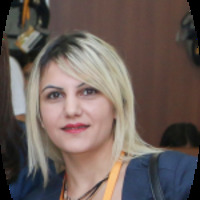Litera: Journal of Language, Literature and Culture Studies / Litera: Dil, Edebiyat ve Kültür Araştırmaları Dergisi, 2021
İnsanın aitlik duygusunun bir parçası olan kent, kimi zaman adeta canlı bir varlık gibi insan yaş... more İnsanın aitlik duygusunun bir parçası olan kent, kimi zaman adeta canlı bir varlık gibi insan yaşamının merkezinde yer alır. Bu merkezi belirleyen temellerden biri; mekân olarak kentin insan varoluşunun inşasını, bütünselliğinin bir parçasını oluşturmasıdır. Kimliğini bir mekân çerçevesinde oluşturan insan için kent; mekânın boyutlarından biri olarak varoluş sürecinin yapı taşlarından biridir ve bu varoluş sürecinde insanmekân, mekân-insan ve insan-insan ilişkisinde mekânın rolü gibi üç boyutlu bir etkileşim yapısı söz konusudur. 1703 yılında kurulan Peterburg kenti, Avrupa'ya açılan pencere olarak Çar I.Petro modernleşmesinin, yeni Rusya düşüncesinin sembolü olur. Ancak bu sembol, aynı zamanda yeni kentin yarattığı toplumsal düzen ile beraber ciddi tartışmaların da merkezinde yer alır. Peterburg artık hem yeni kültürün temsili hem de toplumsal çelişkilerin açıkça hissedildiği bir mekân olarak karmaşık bir süreci beraberinde getirir. Bu süreç dönemin edebiyatında da ifade bulur ve Peterburg'a dair iki tür söylem gelişir. Peterburg bir taraftan Rusya'nın Batı'ya açılan penceresi, modernleşmenin sembolü olarak değerlendirilirken, diğer taraftan bireyselliğin hâkimiyet altına alındığı, kapitalist sistemin küçük insanlara yaşam hakkı tanımadığı ruhsuz, bürokratik bir kent olarak değerlendirilir. Bu çerçevede çalışmamızın sınırları içinde Aleksandr Puşkin, Mihail Lermontov, Nikolay Gogol, Fyodor Dostoyevski gibi yazarlar çerçevesinde insan-mekân ilişkisi bağlamında 19. yüzyılın ilk yarısı Rus edebiyatında Peterburg teması ele alınacak, Peterburg hem yazarların dünya duyumsayışı, hem de kahramanlarının varoluş ve mücadele mekânı olarak değerlendirilecektir.

Uploads
Papers by NAZAN COŞKUN
context of the socio-political views of that period. Having begun his literary career under the auspices of I. Turgenev, Leontiev was quite far from Dostoevsky in the context of the popular approach of the famous writer. But in his prevailing thoughts about the revolutionary thinkers of the era and the
prerequisites of European civilization in the development of Russia, Leontiev shares the same thoughts
as Dostoevsky. While Leontiev was engaged in foreign affairs, which he began in 1863, and continued in the Ottoman lands with a consular mission, Dostoevsky gradually became one of the most famous
writers in Russia. Despite the fact that Leontiev continued his literary activity, unlike Dostoevsky, he did not manage to get the expected reaction to his works. Despite the fact that the paths of the two writers, whose work was formed in the light of the same themes, never completely intersected, Leontiev's work entitled "On Universal Love", which is the main subject of our study and written by him in response to Dostoevsky's "Pushkin speech", indicates that the thinker is deeply impressed by
Dostoevsky and wants to confront the author. The main theme of this confrontation is the idea of a universal paradise on earth, established under the leadership of Russia of brotherhood and love, which
is the main discussion of Dostoevsky's "Pushkin's speech". Leontiev challenges this idea, which Dostoevsky considers to be the centerpiece of the preaching of all his great novels, as the corruption and depravity of Christianity, and at the same time opposes the thesis that the essence of Christianity is fear, not love. Since in true Orthodox Christianity, which, according to the thinker, is not a universal, but an individual religion of salvation, there is no ideal of heaven on earth based on love. In this
regard, our work has mainly determined the path to the calculation of whether love or fear is the essence of Christianity in the context of similarities and differences, concentrated in the general lines
of the work of Leontiev and Dostoevsky. If the basis of the great confrontation, which was our main topic, was mainly Dostoevsky's "Pushkin speech" and the novel "The Brothers Karamazov", then when evaluating the opinions of various thinkers with arguments in favor of this discussion, Leontiev's work "On Universal Love" was taken as a basis. According to the conclusion that we came to in the context of our work, despite the fact that the work of Dostoevsky and Leontiev developed on the same plane, there was a big gap in discussions about the essence of Christianity. For Dostoevsky, the doctrine of Christian love is the truth shining in Christ, while for Leontiev, who sees the source of truth in fear, this doctrine is simply a deviation from Christianity.